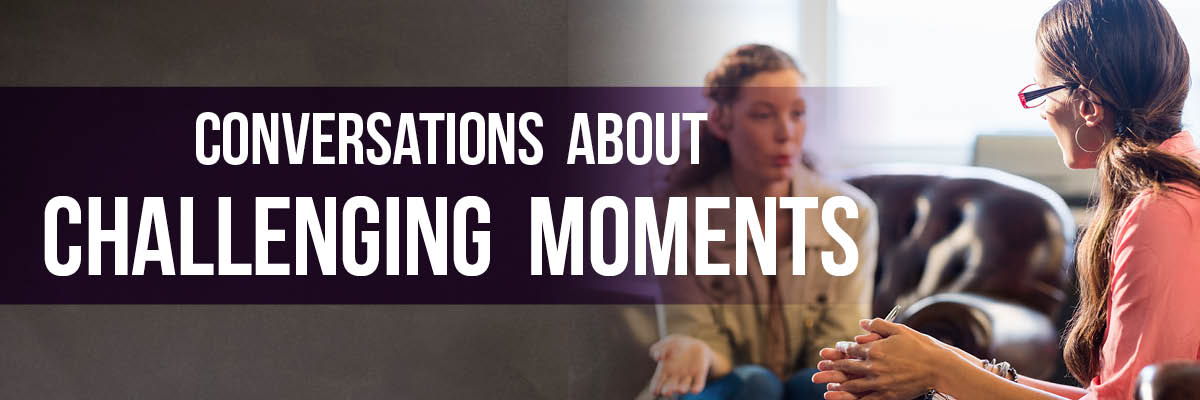
Tools to help lead thoughtful conversations in your courses
Educators have a responsibility to embody the values and behaviors we want to see in the world. One way to do this is by creating opportunities for their students to express and process their feelings during a traumatic event. Even though instructors may feel overwhelmed to have these difficult conversations or may feel they don’t align with the content, we do need to acknowledge that the outside world affects the classroom. We need to find a way to facilitate and guide students but also respect those who may not want to engage.
We have some theoretical concepts and resources to support and guide you to facilitate difficult conversations in your classroom.
Pre- and Post-election Resources
Acknowledging current events is important. You may not be an expert but students may need to be grounded to be ready for your content for that day. We suggest that you find a moment to acknowledge any discomfort or distractions, and use mindfulness to center students before starting class, especially on those difficult and tumultuous days. Our campus values free speech and we want to ensure that no student feels unheard or shut down. It may be important to have some community agreements in the classroom to enable respectful dialogue.
We will continue to build this section but these are some resources for election-related conversations.
- Post-election Advice for the classroom from a teacher
- 5 Ways to integrate the 2024 Election into the Classroom
- Talking across Divides: 10 Ways to Encourage Civil Classroom Conversation on Difficult Issues
- Navigating challenging conversations with students in this particularly fraught time.
- Explaining the Exploding Clown Car
- Teaching Resources to Help Students Make Sense of the Rampage at the Capitol
Resources For Challenging Moments
- Making Space for Difficult Discussions
- Making the most of "Hot Moments" in the classroom
- Resources for Supporting Our Campuses in Politically Fraught Times
- Teaching in the Age of Disinformation
- Managing Hot Moments in the Classroom: Concrete Strategies for Cooling Down Tension
- Responding to Microaggressions in the Classroom: Taking ACTION
- What to do Before, During, and After Difficult Dialogues About Diversity
- On “Difficult’ Conversations
- Pedagogies of Care: Open Resources for Student-Centered and Adaptive Strategies in the New Higher-Ed Landscape
- Responding to Microaggressions in Online Learning Environments During a Pandemic
Pedagogy of Discomfort
- Boler, Megan. (1999). "A Pedagogy of Discomfort." Feeling Power: Emotions and Education. Routledge: NY, NY.
- Bird, F. B., & Waters, J. A. (1989). The Moral Muteness of Managers. California Management Review, 32(1), 73-88. https://doi.org/10.2307/41166735
- Zembylas, Michalinos (2018). Affect, race, and white discomfort in schooling: decolonial strategies for ‘pedagogies of discomfort’. Ethics and Education 13 (1):86-104.
Resources to Manage Disruptive Behavior
Students may display disruptive behaviors in the classroom for which there may not be apparent causes. These are some resources to help you manage such situations. You can also reach out for 1:1 consultations with CEETL or Dean of Students (Action Care Team or Student Conduct).
- Best Practices for Managing Disruptive Behavior
- Addressing Student Needs: Dealing with Disruptive Behavior in the Classroom
- Working with students on the Autism Spectrum
- Supporting Neurodivergent Students in the College Classroom
- Strategies for preventing disruption and disrespect in the classroom
- Preventing Peer-to-Peer disrespect
- Making the most of hot moments
- Dealing with the unexpected (strategies for both online and in-person courses)
Conversations About Race
- Talking about Race
- Engaging With Students in Conversations About Race
- ‘We Can’t Ignore This Issue’: How to Talk With Students About Racism
- Discussing Race, Racism, and other Difficult Topics with Students
- Teaching Race: Pedagogy and Practice
- How to Talk with Students about Racism
- Pedagogical Strategies to Discuss Institutional Legacies of Racism with Students